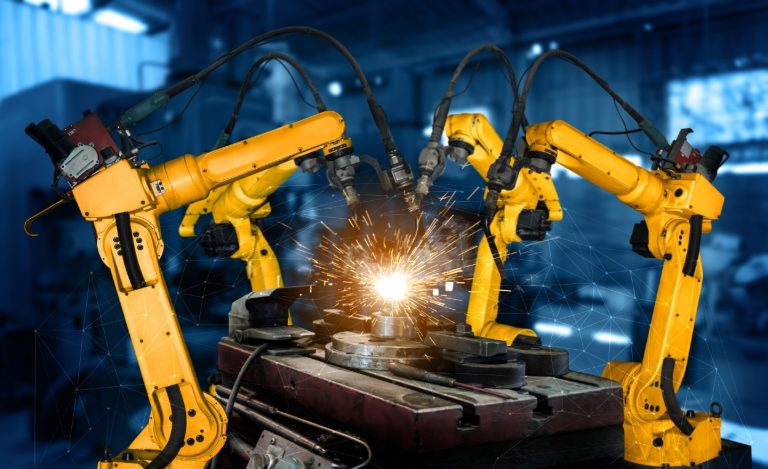LAGOS, Nigeria (VOICE OF NAIJA) – AI is a transformational technology that is already bringing meaningful and positive change to people and societies around the world.
Put simply, AI is an effort to build machines that can learn from their experiences, spot patterns and make predictions better than any computer has been able to do before. Using this technology, we can now give governments, businesses and citizens the tools they need to make systemic change, like meeting the climate challenge.
Here are five ways that we and our partners are using AI to help reduce emissions, protect nature and build cleaner environments:
1. Helping communities to predict and prepare for natural disasters:
We’re already seeing the impact of climate change in communities around the world, with natural disasters affecting millions of people each year. Being able to predict, prepare for and respond to these crises can be life-saving.
AI can now help us to predict the trajectory of hurricanes, typhoons and floods – so that we can share forecasts and advice on how to stay safe on SOS Alerts and Maps. And by combining satellite imagery with AI analysis, we’re able to identify which areas need help after a disaster has struck – helping rescue organizations reach those most in need quickly.
2. Recovering global wildlife populations
Recovering global wildlife has never been more important – and that’s precisely the aim of Wildlife Insights. The tool uses AI to help conservationists and nonprofits to better track, understand and share insights on wildlife populations.
Conservationists rely on camera traps to monitor wildlife populations. But one camera can take hundreds of thousands of pictures every month – and processing and analyzing them is time consuming and inefficient.
That’s where Wildlife Insights comes in. It uses AI to analyze and classify each photo – so that users can instantly filter to see photos only of a particular species, or location.
And, through Google Cloud, different organizations from across the world are uploading, storing and sharing their findings on the platform – removing silos and helping assess results on a global level. In the Philippines, ZSL is using Wildlife Insights to track endemic species – while in Columbia, the WWF and UNDP are helping build a wildlife corridor for jaguars.
3 Cleaning up fashion’s supply chain
The fashion industry is one of the largest contributors to the global climate crisis, with much of their impact occurring at the raw materials stage of the supply chain – like when cotton is farmed, or trees cut down. But when brands source these materials, they often have little visibility on their environmental impact.
Enter Global Fibre Impact Explorer: a tool built in partnership with Stella McCartney, NGIS, Textile Exchange and WWF Sweden to give companies the data they need to make more sustainable sourcing decisions.
The tool, which launches formally later this year, uses Google Cloud and Earth Engine to help brands identify the environmental risks of over 20 fibres, and provides recommendations for risk-reduction activities – including opportunities to work with local communities.
4 Helping prepare for extreme heat
Cities across the world are trying to reduce ‘heat islands’ – patches of a city that become particularly hot in a heat wave. Heat islands are caused by their surrounding infrastructure and lead to poor air quality, dehydration and other public health concerns.
Tree Canopy – part of Environmental Insights explorer – uses aerial imagery and AI to help local authorities identify heat islands, and plan tree coverage to combat them. The tool, which is now being rolled out to nearly 350 more cities globally, has already been used across the US to plant trees in vulnerable areas and parkways, and place bus stops in tree-shaded areas.
5 Giving you more sustainable options
You’re probably already using AI to reduce your emissions without even realising it. Google Maps uses AI to give you the best walking or cycling routes – and to suggest the most fuel-efficient routes for journeys where you need to drive.
For electric vehicle drivers with Google built-in, we’re now using AI to recommend the best charging stop for you – based on factors like current traffic, your charge level and expected consumption.
And since 2011, Google’s Nest Thermostats have saved over 120 billion Kwh of energy – enough to power 1 million electric vehicles for over 320,000 miles each. The thermostat uses AI to learn user schedules and adjust the heat accordingly – even turning it off when you’re out.




